|
In the Long Tail Partnership we are working intensively on Increasing Accessibility of International Professional Development for Language Teachers. Joint effort of the Deutsche Auslandsgesellschaft, Euneos, and STEP Institute gave birth to the 22nd Pan-European Conference on Digital Education, edition Digital Teaching of Languages. Kindly invited to join! Time: 26th January 2023 from 15:00 to 16:30 Central European Time Location: Live streaming on Facebook page Erasmus+ Courses by Primera and YouTube channel Erasmus by Primera. The Conference is free of charge, held in English. The Agenda: Round Table: Overcoming Problems & Challenges of International Teacher Training in the Erasmus+ Programme Martin Herold, Deutsche Auslandsgesellschaft, Spasia Neshkoska Tsutsuleska, Euneos, & Dr Blanka Tacer, STEP Institute Teaching Shakespeare in the Digital Age Daniela Dumitra Balosache, Petrache Triscu Sports High School Craiova Digital Tools for Teaching Languages Online Daniel Johnson, Språklärarnas Riksförbund How Motherhood Changed the Digital Teacher in Me Emilija Stojanovska, Primary school Brakja Miladinovci We issue certificates based on your activity: Certificate of Oral Presentation is available for conference presenters, Certificate of Poster Presentation is available to confirmed presentations on conference Padlet, Certificate of Attendance is available to listeners upon the request. Apply as a participant: follow this international learning event in which teachers share their best practice. Contribute to PadletWould you like to present your best practice on using digital tools in teaching languages, but you don't want to talk in front of teachers? You can still present and get a Certificate of Poster Presentation. Prepare a Power Point (or some other type) of presentation on digital teaching of languages you use in your own class. Upload it to the conference Padlet until 27th January 2023. Please note, presentation should be in English. We will consider only the presentations about digital teaching of languages best practice. Please do not upload any theoretical articles. Looking forward to circling all the teaching ideas. We are grateful to all the teachers who contribute to the Pan-European Conference on Digital Education community. A community is a family you choose.
Time: 22nd of December 2022 from 15:00 to 16:30 Central European Time Location: Live streaming on Facebook page Erasmus+ Courses by Primera and YouTube channel Erasmus by Primera. The Conference is free of charge, held in English. Oral presentationsOn the Path of Solidarity Nerea Garin, Salesianos Urnieta GroWeek - Embrace Challenges to Build Growth Mindset Erika Ugron, Liceul Tehnologic Electromureș Promoting mental health in classroom Marija Klančar, OŠ Mirna Maintain and Even Rise the Level of Knowledge With Video Tutorials Simon Grižonič, STŠ Koper ListenersApply as a participant: follow this international learning event in which teachers share their best practice. We offer Certificates of Attendance upon request. Confirmed Erasmus+ Courses by PrimeraThis year we have 2 upcoming Erasmus+ courses in Ljubljana left for any last-minute registrations. Check them out:
Time: 24th of November 2022 from 15:00 to 16:30 Central European Time Location: Live streaming on Facebook page Erasmus+ Courses by Primera and YouTube channel Erasmus by Primera. The Conference is free of charge, held in English. Oral presentationsUsing Authentic Inquiry as a Pedagogical Approach to Re-Engage and Motivate Learners Tristan Middleton, University of Gloucestershire Cultivating Responsible Global Citizens Through Project Based Learning Genevieve Murphy, Know My World & MangaX Technology NEETs for NEETs - How Experience-Based knowledge Can Improve Social Sustainability Jonas Abrahamsson, Västra Götalandsregionen Problem-Based Learning on Social-Emotional Competencies Marija Nedevska, Metodi Mitevski Brico Poster presentationsWould you like to present your best practice on one of the four conference topics, but you don't want to talk in front of teachers? You can still present and get a Certificate of Poster Presentation. Prepare a Power Point (or some other type) of presentation on one of the four topics above you promote in your own class. Upload it to the conference Padlet until 24th November 2022. Please note, presentation should be in English. We will consider only the presentations about best practice within the four conference topics. Please do not upload any theoretical articles. Looking forward to circling all the teaching ideas. ListenersApply as a participant: follow this international learning event in which teachers share their best practice. We offer Certificates of Attendance upon request. Fall Confirmed Erasmus+ Courses by PrimeraIf you want to experience an on-site Erasmus+ course, please join us in Ljubljana. Here is the list of upcoming courses in November and December:
Time: 27th of October 2022 from 15:00 to 16:30 Central European Time Location: Live streaming on Facebook page Erasmus+ Courses by Primera and YouTube channel Erasmus by Primera. The Conference is free of charge, held in English. The programme of the 31st edition: Step-by-Step Guideline of AI Training in Adult Education Jingyang Yu, emcra GmbH Useful Methods and Resources for Teachers and Trainers on the Topic of Artificial Intelligence Monika Legnar, STEP Institute AI Technologies in E-Health Fulvio Ananasso, Stati Generali dell'Innovazione Using CAD to Support Project-Based Learning in the Engineering Classroom Franci Uduč, Šolski center Krško-Sevnica STEAMBUILDERS: Building the STEAM Abilities of Students and Teachers Through Inclusive Pedagogical Sequences Teja Bajt & Monika Bitežnik, GoInno Oral presentationsShare your teaching practice with colleagues across Europe. Sign-up to present and receive a Certificate of Oral Presentation. ListenersApply as a participant: follow this international learning event in which teachers share their best practice. We offer Certificates of Attendance upon request. Upcoming Primera CoursesUse your Erasmus+ grant wisely and attend one of the upcoming confirmed courses we organize in Ljubljana.
Time: 29th of September 2022 from 15:00 to 16:30 Central European Time Location: Live streaming on Facebook page Erasmus+ Courses by Primera and YouTube channel Erasmus by Primera. The Conference is free of charge, held in English. Oral PresentationsThe 30th conference promotes four important topics:
How Designing PBL to Serve the Community Can Grow Social Emotional Skills, Rebecca Reid, Harris Aspire, and Jess Hughes, The Difference Welcoming Activities for VET Students, Laura Vallicella, VET School Stimmatini Verona School: A House of Well-Being, Felicia Ion, Școala Gimnazială “Prof. Ion Vișoiu” Social Inclusion Theory, Kelsie Ann Kerwin, ESMOVIA The Development of English Competences and Students’ Motivation With eTwinning Projects, Delora Gineta Rosu, Topliceni Secondary School Poster PresentationsWould you like to present your best practice on one of the four conference topics, but you don't want to talk in front of teachers? You can still present and get a Certificate of Poster Presentation. Prepare a Power Point (or some other type) of presentation on one of the four topics above you promote in your own class. Upload it to the conference Padlet until 29th September 2022. Please note, presentation should be in English. We will consider only the presentations about best practice within the four conference topics. Please do not upload any theoretical articles. Looking forward to circling all the teaching ideas. ListenersApply as a participant: follow this international learning event in which teachers share their best practice. We offer Certificates of Attendance upon request. Fall Erasmus+ CoursesKindly invited to join our upcoming fall Erasmus+ courses:
We are grateful to all the teachers who contribute to the Pan-European Conference on Digital Education community. A community is a family you choose.
Time: 25th of August 2022 from 15:00 to 16:30 Central European Time Location: Live streaming on Facebook page Erasmus+ Courses by Primera and YouTube channel Erasmus by Primera. The Conference is free of charge, held in English. The agenda
We issue certificates based on your activity: Certificate of Oral Presentation is available for conference presenters, and Certificate of Attendance is available to listeners upon the request. Many teachers made digital teaching really effective. The role of the group Pan-European Conference on Digital Education by Primera is to make best practices visible. Apply as a presenter and share your teaching case with teachers across Europe. Apply to the conference as a participant and learn from your teacher colleagues. We are grateful to all the teachers who contribute to the Pan-European Conference on Digital Education community. A community is a family you choose.
Kindly invited to join our upcoming fall Erasmus+ courses:
Time: 28th of July 2022 from 15:00 to 16:30 Central European Time Location: Live streaming on Facebook page Erasmus+ Courses by Primera and YouTube channel Erasmus by Primera. The Conference is free of charge, held in English. The programme:
We issue certificates based on your activity: Certificate of Oral Presentation is available for conference presenters, and Certificate of Attendance is available to listeners upon the request. Many teachers made digital teaching really effective. The role of the group Pan-European Conference on Digital Education by Primera is to make best practices visible. Apply as a presenter and share your teaching case with teachers across Europe. Apply to the conference as a participant and learn from your teacher colleagues. We are grateful to all the teachers who contribute to the Pan-European Conference on Digital Education community. A community is a family you choose.
Time: 30th of June 2022 from 15:00 to 16:30 Central European Time Location: Live streaming on Facebook page Erasmus+ Courses by Primera and YouTube channel Erasmus by Primera. The Conference is free of charge, held in English. We issue certificates based on your activity: Certificate of Oral Presentation is available for conference presenters, and Certificate of Attendance is available to listeners upon the request. The programme: Growth Mindset in Distance Teaching and Learning Dr. Tuncay Saritas, Distance Education Research Center, Balikesir University The role of Growth Mindset in the Industrial Knowledge Transfer: Case Study of the University of Targu Mures Dr. Sorina Moica & Dr. Daniela Stefanescu, G.E. Palade University of Medicine, Pharmacy, Science and Technology of Targu Mures A Case of Growth Mindset Webinar for Students Monika Legnar, STEP Institute An Open-Access Compendium to the Erasmus+ Project GrowthMinds Dr. Barbara Hanfstingl, Samuel Hafner, Dr. Gertraud Benke, University of Klagenfurt Apply now to participate this free international learning opportunity. Many teachers made digital teaching really effective. The role of the group Pan-European Conference on Digital Education by Primera is to make best practices visible. Welcome!
Time: 26th of May 2022 from 15:00 to 16:30 Central European Time Location: Live streaming on Facebook page Erasmus+ Courses by Primera and YouTube channel Erasmus by Primera. The Conference is free of charge, held in English. We issue certificates based on your activity: Certificate of Oral Presentation is available for conference presenters, and Certificate of Attendance is available to listeners upon the request. Many teachers made digital teaching really effective. The role of the group Pan-European Conference on Digital Education by Primera is to make best practices visible. The Programme:
You can apply for future conferences as a presenter. Possible topics:
Apply as a presenter and share your teaching case with teachers across Europe. Apply to the conference as a participant and learn from your teacher colleagues. We are grateful to all the teachers who contribute to the Pan-European Conference on Digital Education community. A community is a family you choose.
Time: 21st April 2022 from 15:00 to 16:30 Central European Time Location: Live streaming on Facebook page Erasmus+ Courses by Primera and YouTube channel Erasmus by Primera. The Conference is free of charge, held in English. Agenda Modern Approach to Digitalisation in Education Nada Ratković, Srednja strukovna škola bana Josipa Jelačića Sinj CLIL Technologies in Hybrid Education Svitlana Tarasova, V. N. Kharkiv Karazin National University An Art Lesson - English in Breakout Rooms Mirta Kos Kolobarić, Ekonomsko-birotehnička škola Save Environment with 3R's: Reducing, Recycling, Reusing Waste Lacramioara Fira, Seminarul Teologic Ortodox, “Sf. Ioan Gură de Aur” We issue certificates based on your activity: Certificate of Oral Presentation is available for conference presenters, and Certificate of Attendance is available to listeners upon the request. Apply as a presenter and share your teaching case with teachers across Europe. Apply to the conference as a participant and learn from your teacher colleagues. We are grateful to all the teachers who contribute to the Pan-European Conference on Digital Education community. A community is a family you choose.
|
primeraWe empower teachers so they can do their job best. Categories
All
LINKSPrimera's practical handbook for writing high quality Erasmus+ mobility projects.
Pan-European Conference on Digital Education Facebook Community. Primera's FB page. Work with us on Erasmus+ KA2 projects: STEP Institute. |
Erasmus+ by Primera for teachersErasmus+ courses by Primera are dedicated to teachers who value evidence-based and practice-driven training in highly interactive international atmosphere.
OID Ljubljana: E10091479 OID Vienna: E10298896 E: [email protected] T: +386 1 320 28 43 Privacy Policy |
Navigation |
Stay tuned! |
© 2020 Skupina Primera Ltd. All rights reserved.


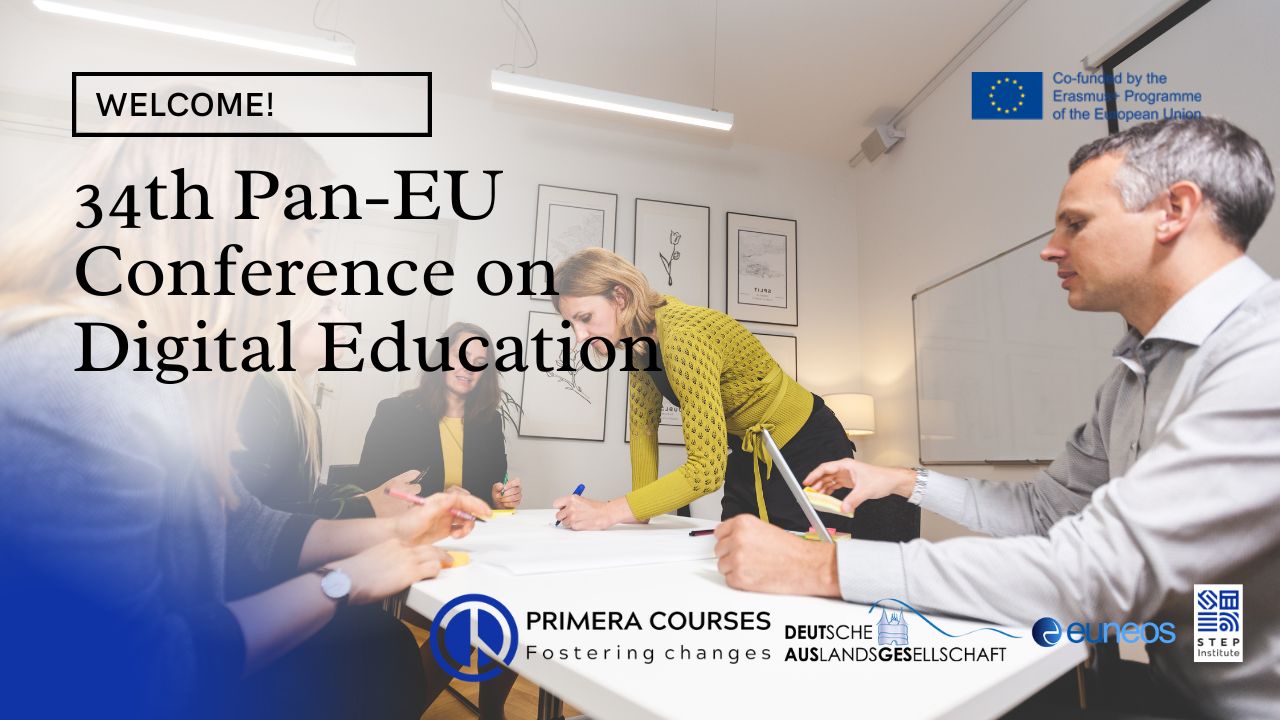

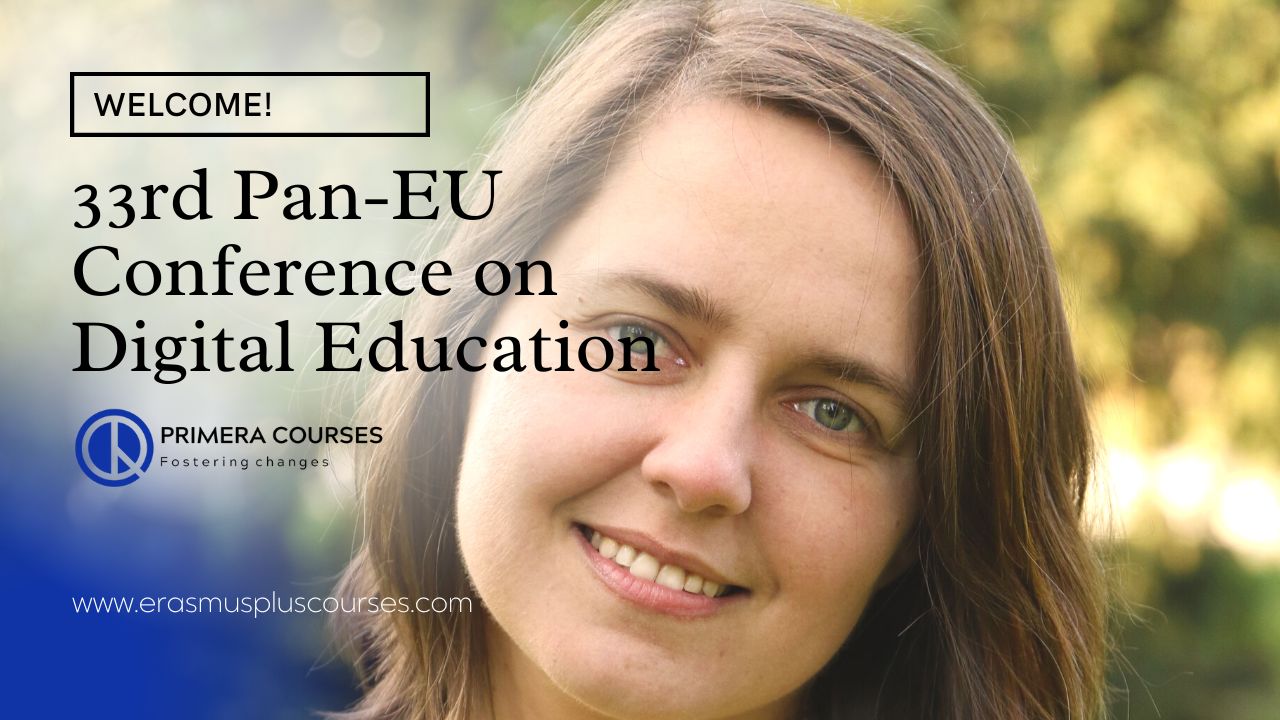
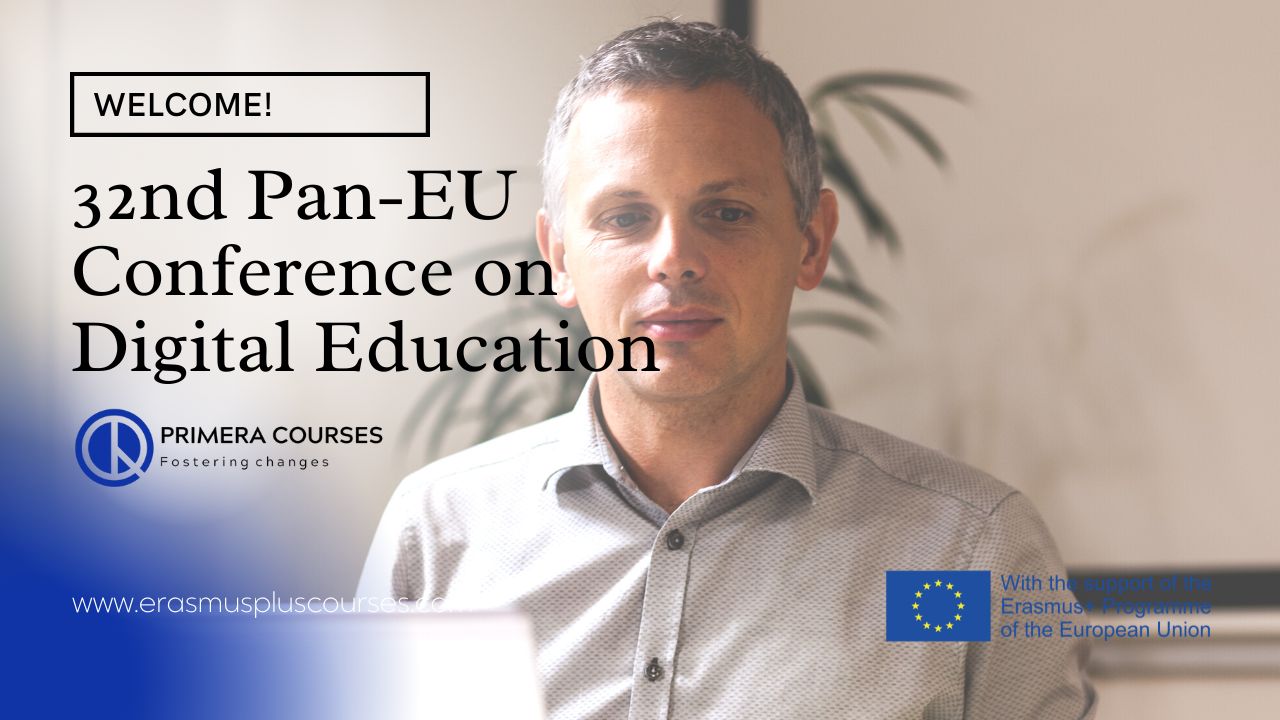

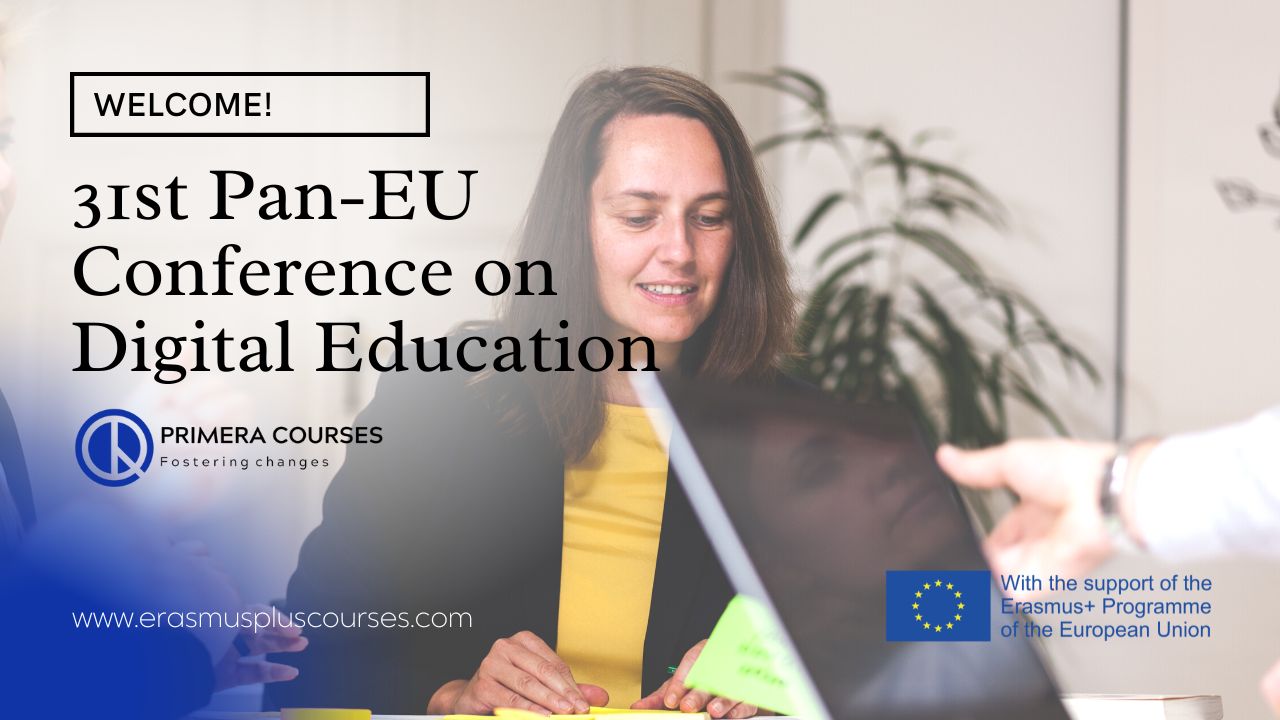
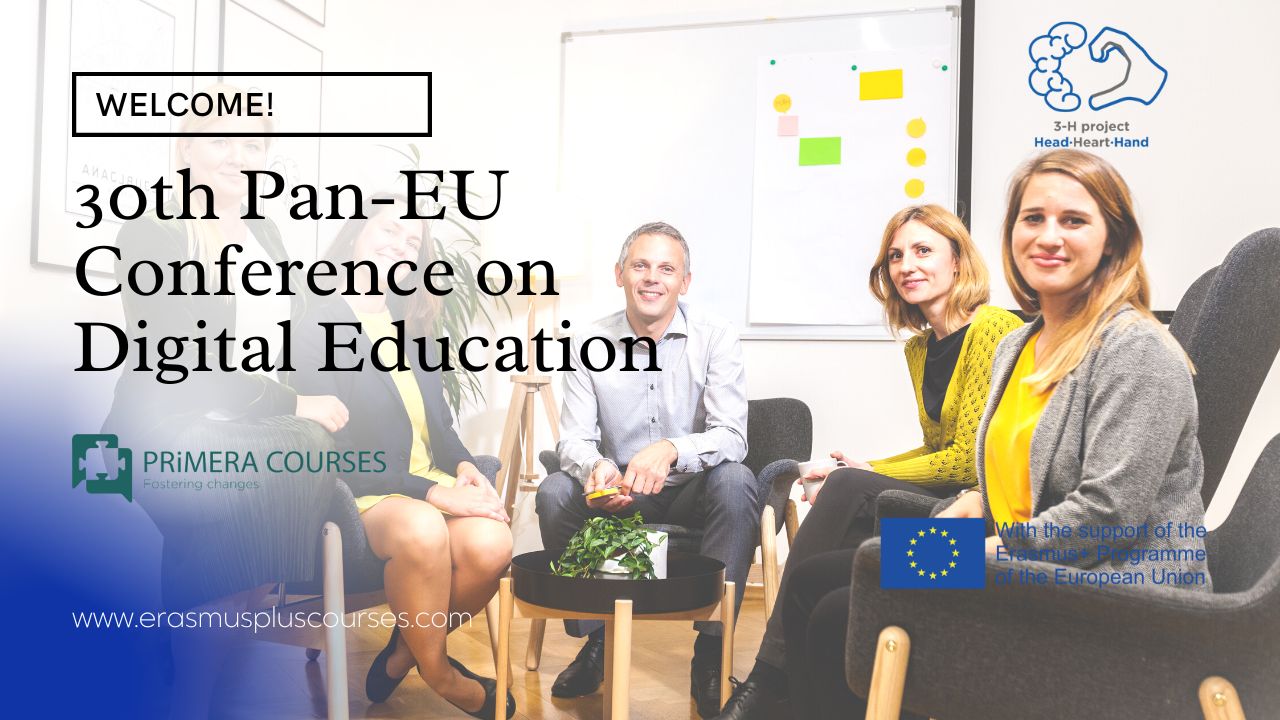

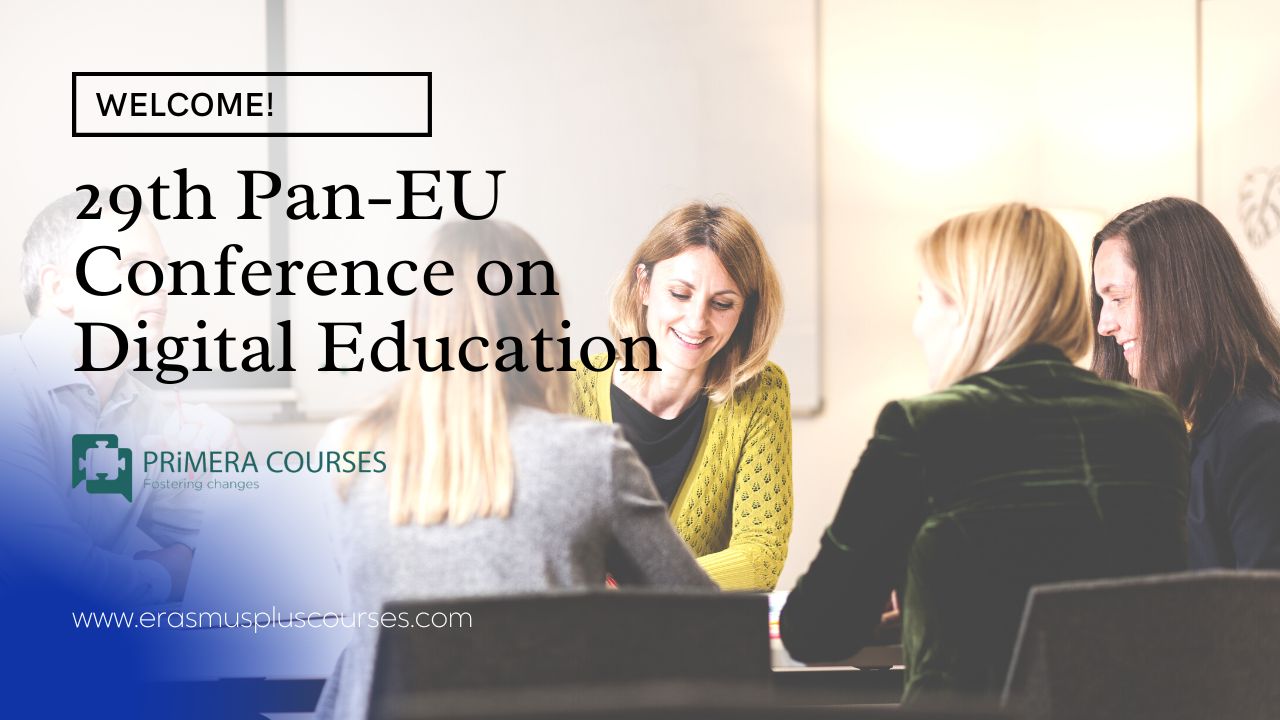
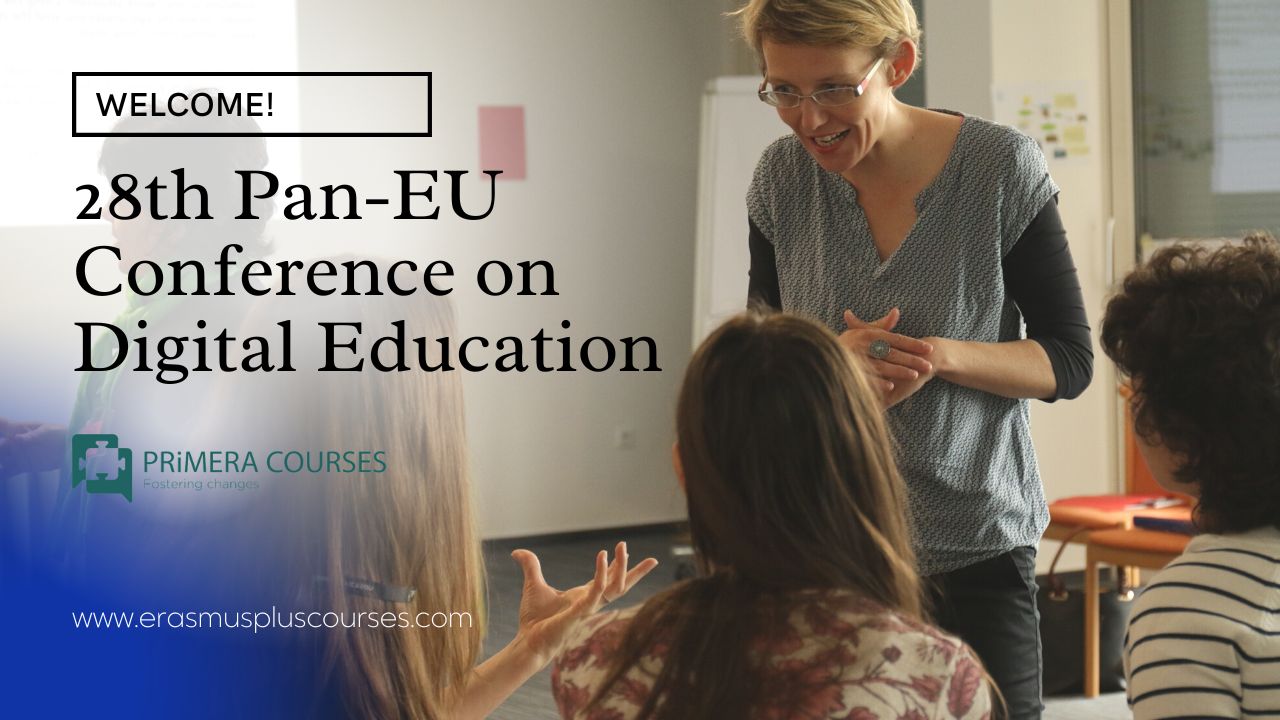
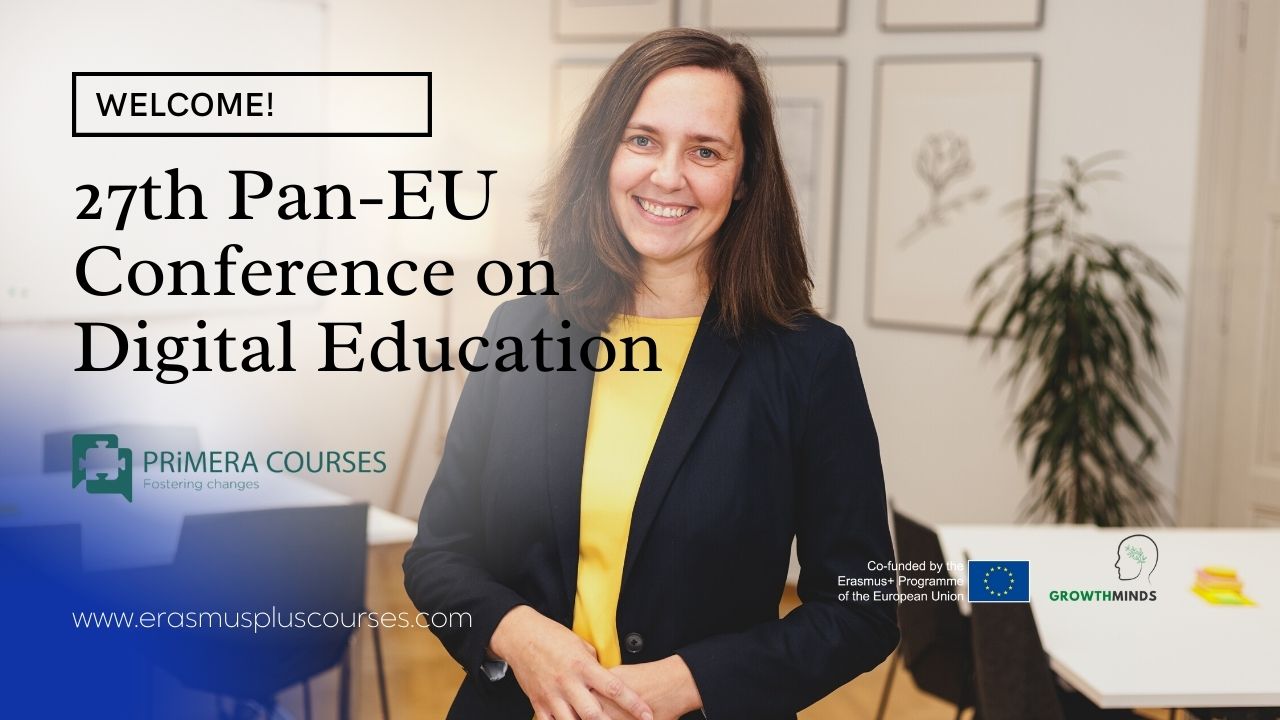

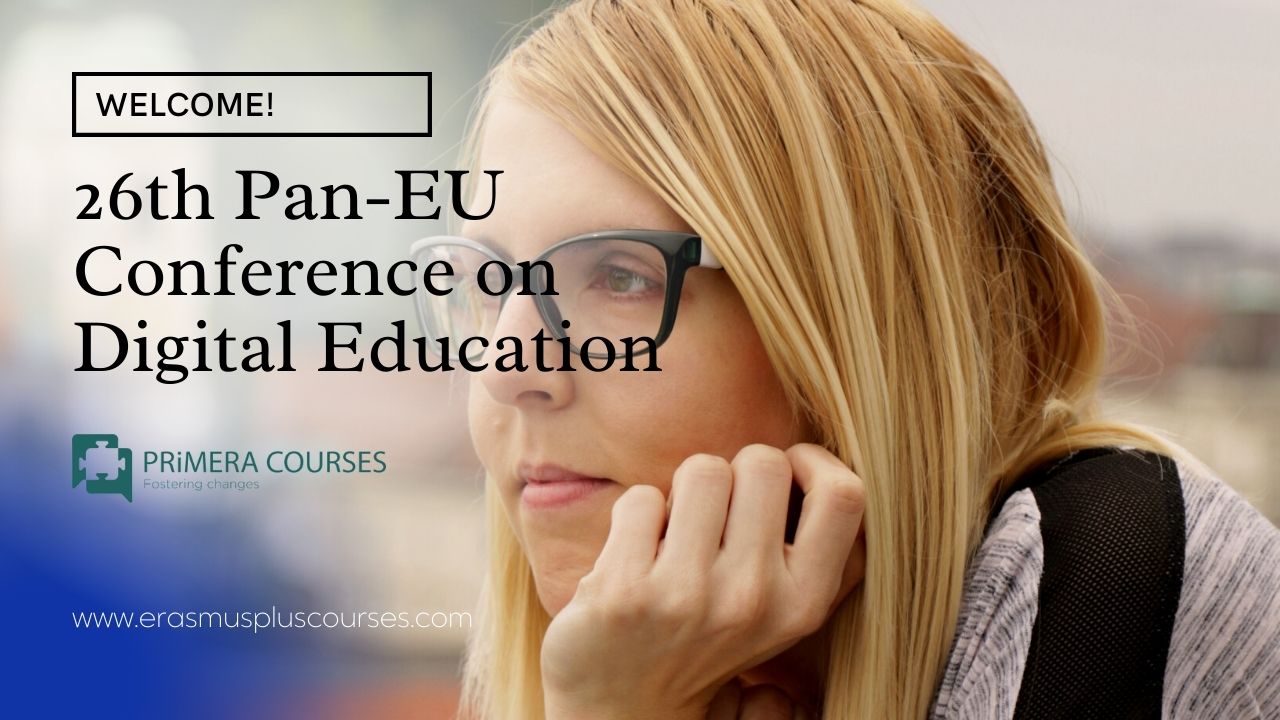
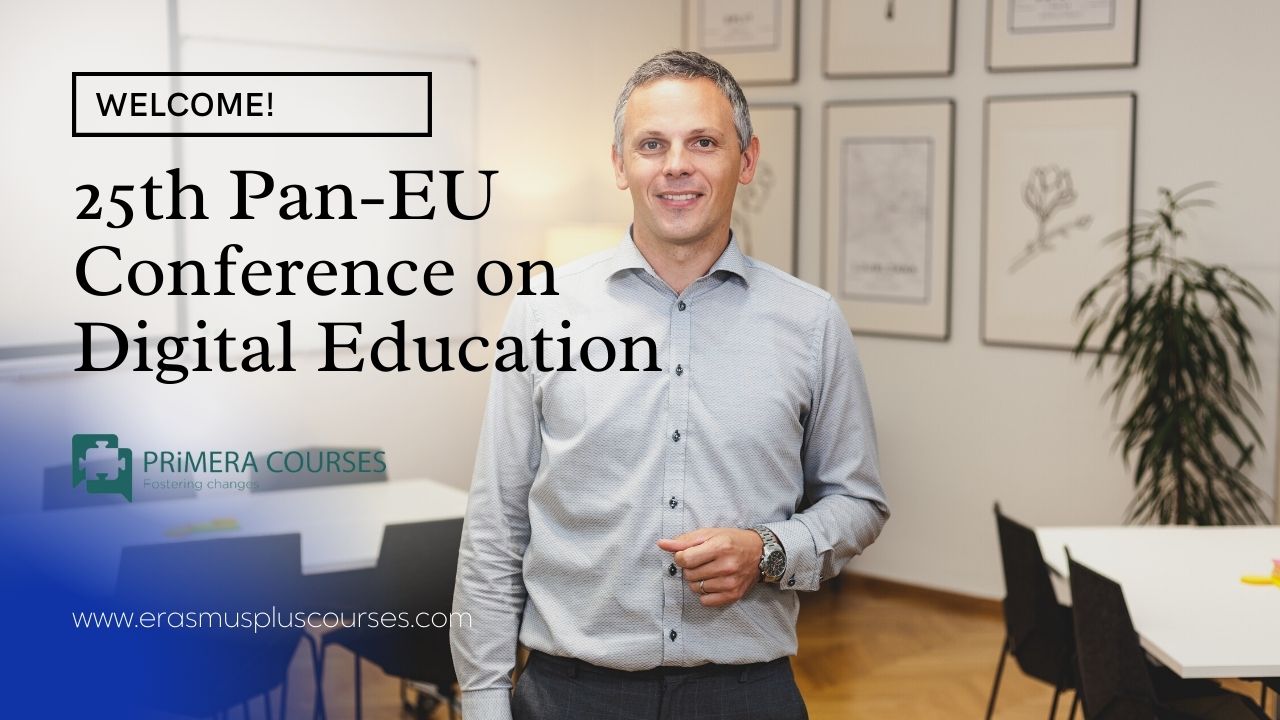
 RSS Feed
RSS Feed